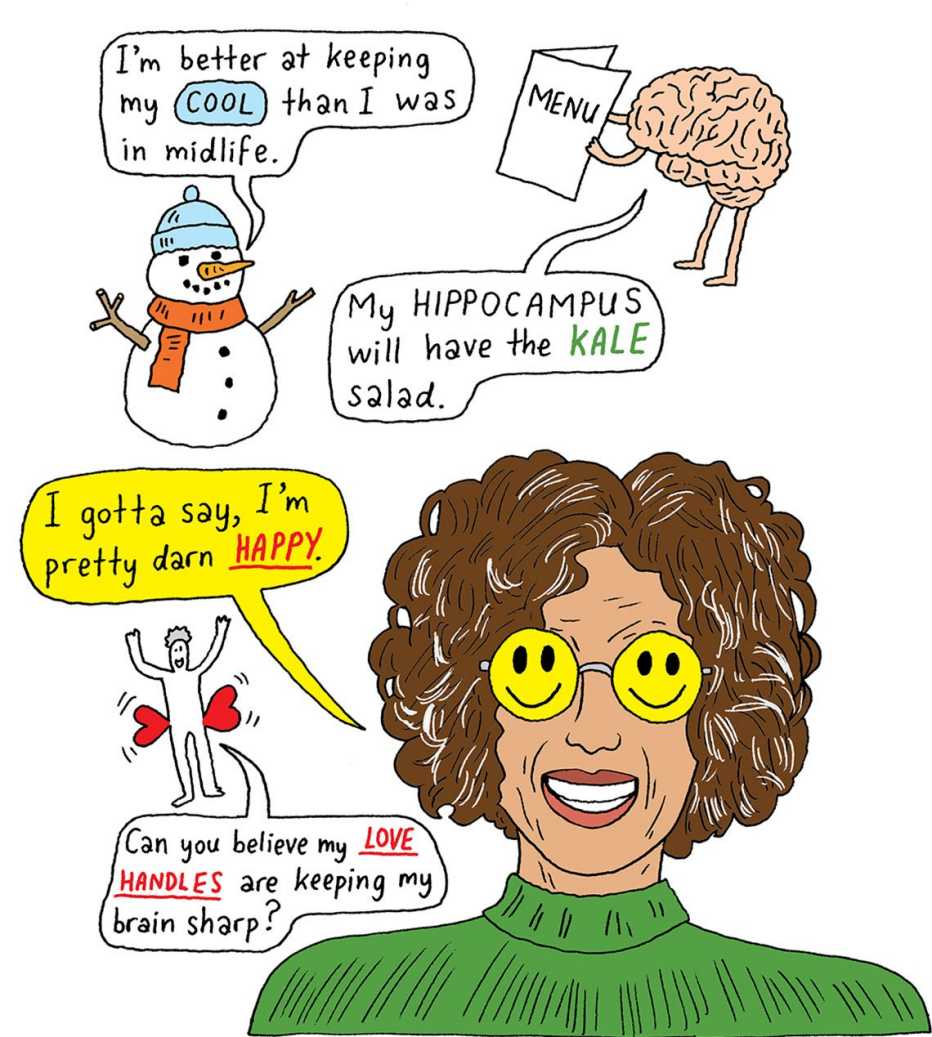AARP Hearing Center


The good news in your 70s: In several ways, your brain is just hitting its stride.
The reality check in your 70s: Keeping your memory sharp means taking care of your health.
- You’re making better decisions than your younger self did. In fact, you lead the pack when it comes to wisdom. Older Americans scored higher on tests of the ability to compromise and maintain perspective than did people in their 20s through 50s, a University of Texas/University of Michigan study showed.
- Your risk of dementia is considerably less than you think. Indeed, in 2012 it was actually 27 percent lower than it was for people ages 75 to 84 in 2000. What happened? Chances are, you’ve been making healthier lifestyle choices than your elders did.
- And that little pot belly? It may be protecting your brain. Being overweight is, at most ages, a risk factor for memory loss. But after age 70, extra pounds don’t seem to affect dementia risk and may even be protective, University of Michigan researchers reported.
- Your hippocampus needs a hand. Though most of your brain has been slowly shrinking for decades, the hippocampus (a memory center) has mostly stayed the same size. But in older adults, the hippocampus can begin to lose volume, particularly if you’ve subjected it to a lifetime of stress, poor sleep and less-than-stellar nutrition. To maintain your internal librarian, make an extra effort to eat dark leafy greens such as kale and spinach, which deliver brain protectors including folate, lutein and carotenoids. These nutrients may slow memory decline significantly, say researchers who tracked 960 older adults for five years.
- Sleep is becoming more elusive. Up to 50 percent of adults in their 70s have trouble falling asleep and staying asleep. You wake up more easily now and spend less time in deep, restorative sleep. One in 3 adults in their 70s take sleep aids, Rx and OTC remedies among them, but some of these can boost your risk for falls and drowsy, disoriented thinking during the day. Instead, sweep away sleep robbers such as caffeine in the afternoon, alcohol at bedtime and extra bathroom trips (drink more water before 7 p.m., less after), and talk with your doctor about sleep obstacles such as pain, restless legs and sleep apnea. Late-morning or early-afternoon exercise can help, too. If you don’t nod off in 10 minutes or so, go to another room and read until you feel sleepy, then return to bed, suggests Theodore M. Johnson II, M.D., chair of family and preventive medicine at Emory University.
- Left untreated, mild hearing loss increases dementia risk twofold; moderate hearing loss, threefold; and severe hearing loss, fivefold.



































































More on Health
Your Senses at 70+
What to expect for your sight and hearing in your 70s